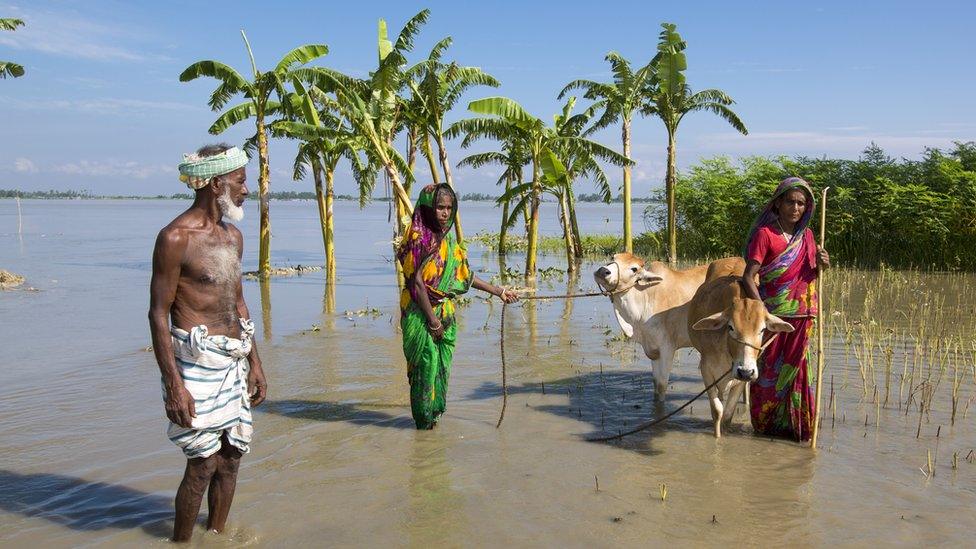COP26: UK government will promise 拢290m to countries most affected by climate change
- Published

The majority of the 拢290m will go to help Asian and Pacific countries that are affected by climate change like Bangladesh, but it is not known exactly which countries will receive the money
The UK will promise to donate 拢290 million to help poorer countries cope with the effects of climate change.
The UK government has said most of this money will be used to help nations in the Pacific and Asia that are most vulnerable to the negative impacts of global warming.
It will go towards improving conservation, which helps protect ecosystems and wildlife, and low-carbon development, which means growing environmentally-friendly industries that can provide the countries with jobs and money.
The government's International Trade Minister has said "we must act now" to prevent climate change from pushing more people into poverty, and that the countries gathered to pledge this money are "aiming for significant change".
However, some people think that what's being decided at the conference isn't going far enough - world-famous climate activist Greta Thunberg said at a protest on Friday that "we don't need any more empty promises" and has branded the summit a "failure".
The protest on Friday saw thousands of children march through the streets of Glasgow
The government's 拢290m pledge is being announced at the COP26 climate summit in Glasgow on Monday, which is the conference's Adaptation, Loss and Damage Day.
Developing countries have asked richer countries for a total of $100bn every year to help adapt to the effects of climate change, like worse flooding and droughts, and to reduce carbon emissions.
A developing country is one with a smaller economy than a developed country - this means that on average, people living there earn less
However, there's no agreed threshold for deciding when a country's economy is developing or developed
There are some other factors that are used to decide whether a country is developing, such as how many children receive primary education
In 2009, rich countries promised they would achieve the $100bn per year by 2020, but that target was not met. The wealthier countries that are planning to donate the money are now aiming to donate $100bn a year by 2023.
However the LDC group, which represents the poorer nations the money will go to, has said "2023 isn't soon enough".
Some people are also arguing that, as well as donating money to help fight climate change in the future, money should be given to countries to compensate for damage that has already been done.
This is called reparations, and it's being suggested that it should happen because wealthier countries are responsible for the majority of the world's greenhouse gas emissions.
So far, Scotland is the only country promising to donate money to compensate countries already suffering because of climate change.
Last week, First Minister Nicola Sturgeon pledged 拢1m to the loss and damage fund, which was the first donation.
- Published5 November 2021
- Published1 November 2021
- Published4 November 2021
